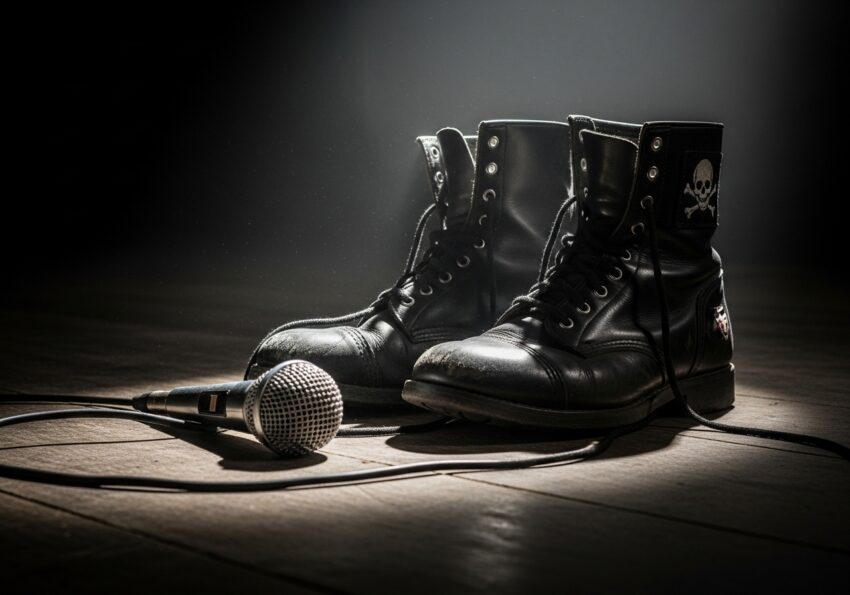Ozzy Osbourne, the “Prince of Darkness,” is gone. At 76, the legendary frontman of Black Sabbath passed away on Tuesday, surrounded by family, love, and decades of musical legacy. Whether you’re a die-hard metalhead or someone who couldn’t name a single Sabbath song, you can’t deny Ozzy’s cultural impact—on music, on television, and, believe it or not, on the spirit of rebellion that shaped a generation.
And no, this isn’t just about headbanging and eyeliner. Ozzy Osbourne represented something deeper: a refusal to conform, a challenge to the status quo, and a relentless pursuit of authenticity in a world increasingly obsessed with sanitized, corporate-approved art. In a time when our culture is being scrubbed clean of edge, grit, and raw truth, Ozzy’s loss is about more than music—it’s about the fading of an era that wasn’t afraid to be loud, real, and unapologetically free.
Born in Birmingham, England, Ozzy came from working-class roots and rose to global fame through sheer grit and talent. With Black Sabbath, he pioneered heavy metal—a genre mocked by elites but embraced by millions of blue-collar Americans who saw in it the same anger and energy they felt in their own lives. Songs like “War Pigs” and “Iron Man” weren’t just noise. They were anthems of defiance, warning about the dangers of unchecked power and the emptiness of modernity. Sound familiar?
The mainstream never liked Ozzy. They never understood him. And frankly, they never wanted to. He was too raw, too controversial, too much a reminder that real art doesn’t need approval from the cultural gatekeepers. Sounding the alarm on war, corruption, and the hollow promises of the elite, Black Sabbath’s music was prophetic, not profane.
Ozzy’s life was far from perfect—he battled addiction, survived a near-fatal ATV crash, endured spinal surgeries, and fought Parkinson’s Disease with a resilience that would put most politicians to shame. He didn’t hide from his weaknesses. He owned them. And that’s exactly why people respected him.
He once said, “I may be moaning about how I can’t walk, but I look down the road and there’s people that didn’t do half as much as me, and they didn’t make it.” That’s the kind of perspective that used to be common in this country—a sense of gratitude for life’s blessings, even amid suffering. That’s what we’re losing in this age of entitlement and victimhood.
Let’s not forget that Ozzy’s cultural relevance extended beyond music. In the early 2000s, “The Osbournes” gave America an inside look at the chaos and humor of his family life. It was raw, unscripted, and wildly popular—not because it was polished, but because it was real. In an era now dominated by fake virtue signaling on social media, the Osbournes were a breath of fresh, chaotic air. They were messy, honest, and deeply human.
Ozzy’s passing should make us pause and ask: What kind of culture are we building today? One that censors, silences, and sanitizes anything that doesn’t fit a narrow narrative? Or one that allows the wild, the weird, and the unapologetic to thrive? The left would prefer the former—safe spaces, trigger warnings, and art that conforms to their ideological checklist. But Ozzy stood for something else entirely. He stood for freedom.
Today, conservatives should remember that cultural warriors don’t always come in red hats. Sometimes they come in leather pants, with a bat in their mouth and a microphone in their hand. Ozzy challenged authority, questioned power, and refused to be boxed in. That’s a spirit we need now more than ever.
Rest in peace, Ozzy. You may have left the stage, but your voice—loud, gritty, and unfiltered—will echo for generations.
Click this link for the original source of this article.
Author: rachel
This content is courtesy of, and owned and copyrighted by, https://www.patriotedition.com and its author. This content is made available by use of the public RSS feed offered by the host site and is used for educational purposes only. If you are the author or represent the host site and would like this content removed now and in the future, please contact USSANews.com using the email address in the Contact page found in the website menu.








